King outlines vision for lasting peace in BBC interview, urges action on Palestine
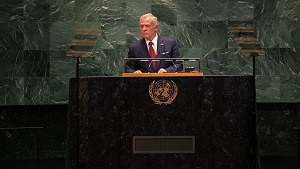
Roya News
AMMAN — His Majesty King Abdullah’s recent interview with the BBC outlined a clear and forward-looking vision for peace in the Middle East, warning of the dangers of continued instability if no just solution to the Palestinian cause is achieved.
The King stressed that the region cannot afford further escalation, highlighting the need to negotiate a comprehensive settlement based on justice, equality, and the establishment of an independent Palestinian state.
Building on that vision, Jordan on Tuesday expressed hope that the outcomes of the Sharm El Sheikh Peace Summit, hosted by Egypt in partnership with the United States, would help end the war in Gaza, ensure the sustained entry of humanitarian aid, and achieve a full Israeli withdrawal from the Strip.
In a statement, the Ministry of Foreign Affairs and Expatriates said it looks forward to “the start of concrete steps towards achieving a just and comprehensive peace based on the two-state solution”.
Foreign Ministry Spokesperson Fouad Majali reaffirmed the Kingdom’s appreciation for the leadership role and efforts of US President Donald Trump in brokering the Gaza ceasefire, rebuilding the Strip, preventing the displacement of Palestinians, and advancing the peace process.
He also welcomed Trump’s declaration that he would not allow the annexation of the West Bank, describing it as “a key step towards preserving the prospects of a viable Palestinian state”.
Political analyst Abdul Hakim Qaraleh described King Abdullah’s BBC interview as “a precise diagnosis of the current regional situation and its possible trajectories.”
He said the monarch had presented a “clear royal vision that combines depth, foresight, and practical solutions,” charting a realistic path toward peace centred on the creation of a Palestinian state.
In remarks to The Jordan Times, Qaraleh warned that the absence of a just resolution could allow violence to dominate the region once again, stressing the urgency of a comprehensive settlement.
Despite diplomatic progress, challenges on the ground remain.
On Tuesday, Israeli authorities informed the United Nations that only 300 aid trucks would be permitted to enter Gaza on Wednesday, half the previously agreed number. Fuel and gas deliveries would also be restricted to specific humanitarian infrastructure needs, the notice said.
Writer and political analyst Thamer Anasweh said the issue of aid delivery remains a “critical and sensitive component” of the Gaza agreement.
He noted that both the Palestinian resistance and mediating parties “recognise its strategic significance,” warning that Israel may be using aid restrictions as a bargaining tool linked to key clauses in the agreement, such as disarmament.
“The occupation may use aid limitations as leverage to influence or even disrupt the continuity of subsequent stages of the deal,” Anasweh added.
Latest News
-
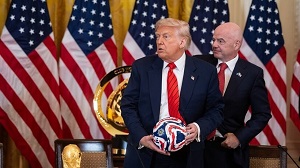 Infantino introduces FIFA Peace Prize with Trump as likely recipient
Infantino introduces FIFA Peace Prize with Trump as likely recipient
-
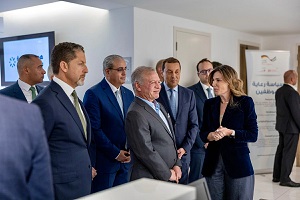 King directs government to expand Samih Darwazah Oncology Centre at Al Bashir Hospital
King directs government to expand Samih Darwazah Oncology Centre at Al Bashir Hospital
-
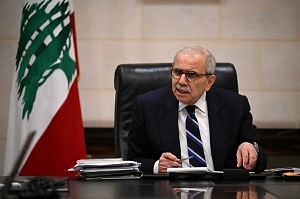 Lebanon, Israel hold first direct talks in decades
Lebanon, Israel hold first direct talks in decades
-
 Nashama open Arab Cup campaign with 2–1 win over UAE
Nashama open Arab Cup campaign with 2–1 win over UAE
-
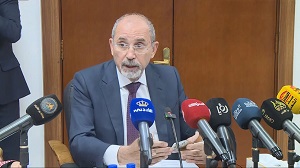 Israel has violated Gaza ceasefire nearly 500 times, aid covers only 20% of needs — Safadi
Israel has violated Gaza ceasefire nearly 500 times, aid covers only 20% of needs — Safadi